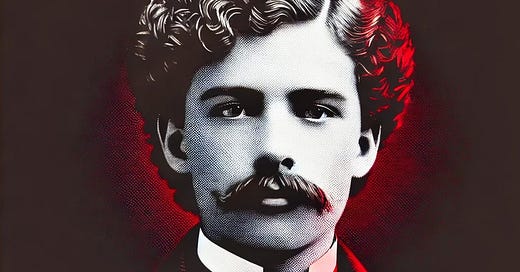Pioneering Legacy in Crimson
Richard Greener, Harvard's First Black Graduate and Racial Equality Advocate
While delving into “W.E.B. DuBois: Biography of a Race” by David Levering Lewis, I encountered the remarkable figure of Richard Theodore Greener (1844-1922), who is widely recognized as the first Black graduate of Harvard College in 1870.
Born in Philadelphia and raised in Boston, Greener's journey through higher education is a testament to his resilience and determination, during a period when educational opportunities for Black Americans were scarce.
While Greener left school to support his family at age 12, his exceptional intellect did not go unnoticed. Recognizing his potential, employers assisted him in resuming his studies, leading him to attend Phillips Academy and Oberlin College. In 1865, he enrolled at Harvard as part of an "experiment" in educating Black Americans.
At Harvard, Greener's academic prowess shone brightly. He won the prestigious Bowdoin Prize for elocution twice and was a Class Day speaker at commencement. His success at Harvard not only broke barriers but also set a precedent for future Black students.
Greener's post-graduate career was equally distinguished. He taught at the Institute for Colored Youth in Philadelphia and became the first Black professor at the University of South Carolina during Reconstruction. While there, he also earned a law degree and was admitted to the state's Supreme Court.
Greener later became the dean of Howard University's law school and was actively involved in Republican politics. In 1898, he achieved another milestone as America's first Black diplomat to a white country, serving in Vladivostok, Russia.
Throughout his life, Greener was a staunch advocate for racial equality, striving to bridge racial divides with a moderate approach that sometimes drew criticism from both Black and white communities. His pioneering efforts in education and public service left an indelible mark, inspiring institutions like Harvard and the University of South Carolina to honor his memory through scholarships, artwork, and monuments.
Recent scholarship has brought renewed attention to Greener's legacy. Katherine Reynolds Chaddock's “Uncompromising Activist: Richard Greener, First Black Graduate of Harvard College” (2017) is one such work. Chaddock, a professor emerita at the University of South Carolina, provides a comprehensive biography that explores Greener's life and achievements in depth.
Through meticulous research, she illuminates his contributions to education, law, and diplomacy, highlighting the broader themes of American history such as the challenges faced by early Black college graduates, the complexities of Reconstruction, and the evolution of Black intellectual and political leadership in the late 19th century.
Greener's life and work underscore the enduring struggle for racial equality and the significant strides made by early Black pioneers in shaping American society. His story is a beacon of inspiration, ensuring that his groundbreaking accomplishments and unwavering dedication to advancing opportunities for Black Americans are rightfully recognized and studied.
Join Our Community Today
As a supporting member of "Black Books, Black Minds," you'll dive deeper into a world where your curiosity around Black History thrives.
At $6 a month or $60 a year, you’ll help sustain the work I am doing to fuel community, connection, and conversation one book at a time.
Best of all, you'll receive handpicked book recommendations tailored for you.
This is your chance to be at the heart of a community where Black History bridges souls through authors and their historical perspectives.
So join us today. Your participation and support will be welcomed and appreciated.







He was a fascinating figure. His daughter, who went by Belle da Costa Greene, worked as J.P. Morgan’s librarian. She passed for white and was a very powerful woman in the international art and literary world. Her life is depicted in a historical fiction novel, The Personal Librarian, published in 2021.
I can see why Du Bois, who was himself the first Black to earn a Doctoral degree from Harvard, may have been inspired by Greener's success.